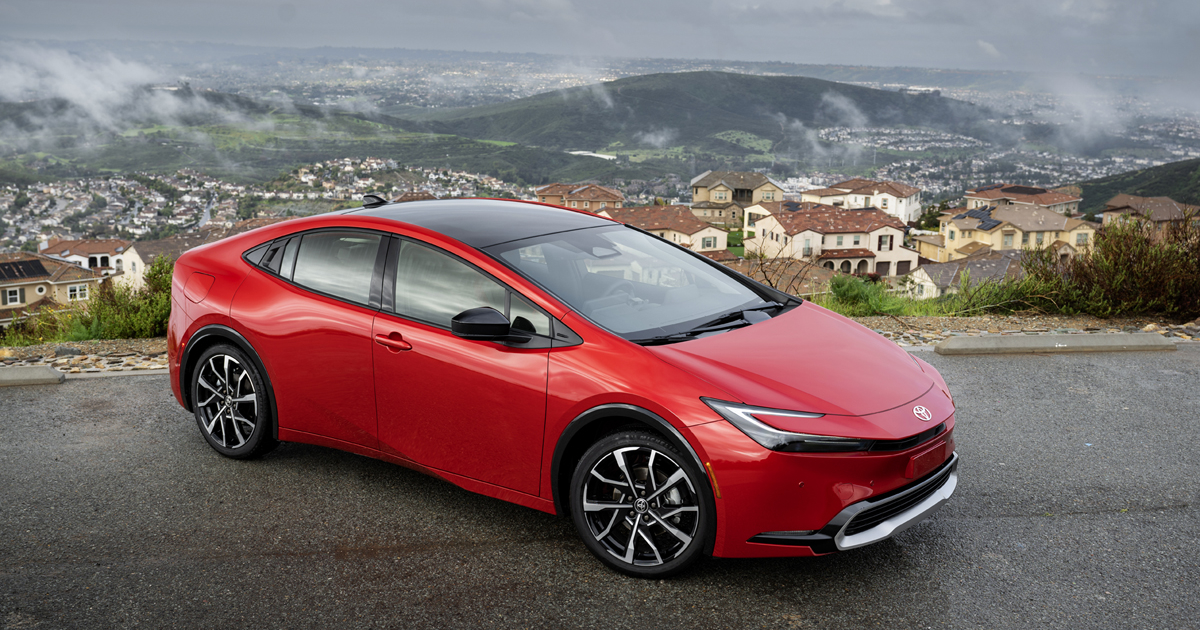
CARLSBAD, Calif. — The plug-in version Toyota‘s redesigned Prius sedan, the 2023 Prius Prime, is now able to travel up to 44 miles on battery power alone when its larger battery is fully charged and will start at $33,445 — both up substantially from the current generation model it is replacing.
The 2023 Prius Prime’s stem-to-stern upgrade follows that of its traditional hybrid namesake, which went on sale earlier this year. Toyota — which is still being hampered by production issues — believes it can sell about 10,000 plug-in versions of its groundbreaking hybrid this year and about 15,000 next year, despite a 12 percent year-over-year jump in the starting price over the outgoing model.
The big change from the outgoing Prius Prime is a larger 13.6-kWh lithium ion battery paired with a more powerful 2.0-liter four-cylinder engine, enabling the 2023 model to travel an extra 19 miles on battery power alone, compared with the current generation’s 25-mile range.
The upgraded powertrain, with its continuously variable transmission, gives the Prius Prime a net of 220 hp and 139 pound-feet of torque, also an improvement over the current model. Combined fuel economy for the 2023 Prius Prime is rated at 52 mpg.
The Prius Prime will come in three trims: the base SE, the midgrade XSE starting at $36,695 and top-grade XSE Premium, starting at $40,265, all including shipping. Toyota’s Safety Sense 3.0, the brand’s latest suite of driver assistance and safety systems, comes standard.
Assembled in Japan, the 2023 Prius Prime is expected to begin arriving in U.S. showrooms in June. Through the first quarter, sales of the current generation Prius Prime were off 62 percent to 994 as dealers struggled to meet demand because of production constraints.
David Christ, head of the Toyota Division for Toyota Motor North America, told Automotive News that the brand’s current plug-in hybrid models — the RAV4 Prime and Prius Prime — “are among the most in-demand vehicles we have.”
Christ said that some dealers with too many pre-sold orders are sending customers to other Toyota stores “out of a sense of transparency because they know they’re sold out and won’t be able to help that customer.” The plug-in powertrain, he said, is “a viable option for customers. A lot of people like the ability to plug it in, get around town on [battery] range, and yet have the flexibility to take the long trip when they want to.”